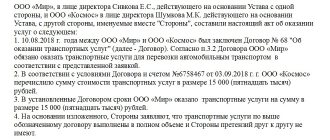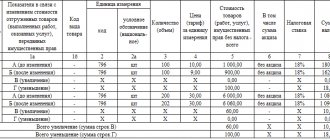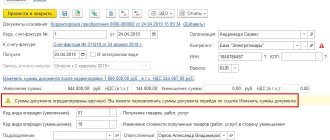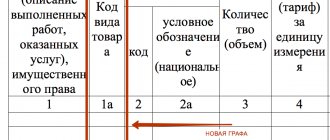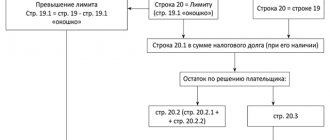Features of tax accounting of services provided by notaries
Depending on whether a notarial form is required for a document, notarial acts are divided into mandatory and optional.
For mandatory services, a notary from a state office will charge the client a fee in the amount specified in Art. 333.24 Tax Code of the Russian Federation. For exactly the same actions, a private notary will charge a tariff in the manner set out in Chapter. 25.3 of the Tax Code of the Russian Federation and Art. 22 Fundamentals of the legislation of the Russian Federation on notaries dated 02/11/1993 N 4462-1. But for actions for which the law does not establish a mandatory notarial form, a notary (it does not matter whether private or public) charges tariffs, as required by the Fundamentals of Notaries.
Find out how to transfer a share of an LLC with the participation of a notary here.
In tax accounting, services for the implementation of notarial actions are taken into account exclusively at the tariffs approved by law (subclause 16, clause 1, article 264 of the Tax Code of the Russian Federation). Expenses in excess of these amounts are not taken into account in the calculation of income tax (Clause 39, Article 270 of the Tax Code of the Russian Federation).
If you have access to ConsultantPlus, find out how to take into account notary services when calculating income tax. If you don't have access, get a free trial of online legal access.
***
Expenses for obtaining notary services reduce the income tax base. To do this, they must be economically justified and properly documented.
Similar articles
- Bank expenses under the simplified tax system: income minus expenses
- How to issue a power of attorney to receive a salary (sample attached)
- Income and expenses from ordinary activities
- Representation expenses under the simplified tax system “income minus expenses”
- Direct income tax expenses: list
Required supporting documents
The citizen of the Russian Federation who has received the appropriate license has the right to engage in notarial activities - such rules are enshrined in Art. 3 Basics about notaries. However, a company that seeks help from a notary is not required to attach a copy of this license to the supporting documents received from him.
As a rule, a company representative pays the notary immediately as soon as he certifies the required document or performs other work according to his competence. In this case, the notary will issue the client with documents indicating the provision of services and their payment.
Let us note that at the moment, no special unified form of primary document issued by a notary to confirm the facts of the provision and payment of his services has been approved. Typically, in such cases, receipts are issued to the recipients and transcripts of the services provided. All of them are certified by the personal signature of a notary (or his authorized representative) and seal.
But often such papers contain only general phrases: for example, “paid for certification of the accuracy of copies” or “state duty collected for notarial acts.” Of course, such vague wording will not be enough to justify the expenses required by law in paragraph 1 of Art. 252 of the Tax Code of the Russian Federation.
For proper acceptance of services for accounting, the document received from the notary must contain all the mandatory details specified in Art. 9 of the Law of December 6, 2011 No. 402-FZ “On Accounting”. It must certainly list the specific actions performed by the notary and indicate the fees charged for each of them.
When receiving documents at a notary's office, also keep in mind the following possibility: in accordance with Art. 50 Fundamentals of Notaries, all notarial actions are recorded in a special register, the form of which is approved by Order of the Ministry of Justice of the Russian Federation dated April 10, 2002 No. 99. An extract from such a register, issued and certified by a notary, can confirm the client’s expenses.
And, of course, you can draw up an act in the usual manner, which lists in detail all the actions performed, indicating the prices for them.
Can notary services be deducted under CIT on the basis of an invoice without AVR?
The Law “On Accounting and Financial Reporting” establishes that its effect applies to:
- individual entrepreneurs;
- legal entities, branches, representative offices and permanent establishments of foreign legal entities registered on the territory of the Republic of Kazakhstan in accordance with the legislation of the Republic of Kazakhstan.
According to the provisions of the Law “On Accounting and Financial Reporting”, accounting documentation includes primary documents, accounting registers, financial statements and accounting policies. Accounting records are made on the basis of primary documents.
Forms and requirements for primary documents used to document transactions or events are approved by the authorized body and (or) the National Bank of the Republic of Kazakhstan in accordance with the legislation of the Republic of Kazakhstan.
Clause 27 of the Accounting Rules states that for the acceptance and transfer of completed work (services rendered), with the exception of construction and installation work, an act of completed work (services rendered) is used, the form of which is approved by Order 562, which is drawn up by the contractor to confirm the fact carrying out a business transaction.
Clause 1 of Article 3 of the Law of the Republic of Kazakhstan “On Notaries” determines that notarial activity is not a business activity. Also, according to paragraph 1) paragraph 1 of Article 19, a notary has no right to engage in entrepreneurial activities.
In accordance with paragraph 19) paragraph 1 of article 1 of the Tax Code of the Republic of Kazakhstan, private notaries are classified as persons engaged in private practice.
Considering that private notaries are not individual entrepreneurs, they are not subject to the requirements of the Law “On Accounting and Financial Reporting” and the Accounting Rules regarding the execution of acts of work performed (services rendered) when providing notarial acts.
The provisions of Article 190 of the Tax Code of the Republic of Kazakhstan establish that tax accounting is based on accounting data. The procedure for maintaining accounting documentation is established by the legislation of the Republic of Kazakhstan on accounting and financial reporting.
Thus, since the legislation on accounting does not establish a requirement for private notaries to prepare acts of work performed (services rendered) when performing notarial acts, private notaries can limit themselves to issuing an invoice, the presence of which is a sufficient document for attributing these expenses to deductions when calculation of corporate income tax.
How to write off notary expenses that exceed the norm?
Quite often situations arise when the amount paid to a notary exceeds legal norms. And what to do with those expenses that do not fit into the legal framework? In some cases, they can be taken into account in expenses for other reasons.
Let's try to take advantage of the fact that in addition to direct notarial services, notary offices also provide some others: legal, informational, consulting, etc., and their list is open (subclauses 14 and 15 of clause 1 of article 264 of the Tax Code of the Russian Federation). The company's expenses for providing these services by a notary can be taken into account in other production and sales expenses (letter of the Ministry of Finance of the Russian Federation dated August 26, 2013 N 03-03-06/2/34843).
For example, the performance of technical work by notaries is provided for in Art. 23 Basics about notaries. There is no state duty (or tariff) for such services - the notary has the right to set prices for them at his own discretion. The Tax Code of the Russian Federation also does not provide for any restrictions on these expenses. Therefore, they can be fully accepted when calculating income tax as legal services.
However, in doing so, you should agree with the notary so that in his decryption certificate he divides the full amount into two components: directly for the notarization and for information (consulting, legal) services. Then it will be possible to fully recognize amounts in excess of the norms in tax accounting, such as, for example, the costs of legal advice.
What notary services are not notarial acts
As part of their activities, notaries have the right to draw up draft transactions, powers of attorney, statements and other documents, make copies of documents and extracts from them, perform other technical work, and also give explanations on issues of performing notarial acts. There is no state duty or tariff for this. Therefore, when providing these services or performing work, the notary charges a “regular” fee, which is established by agreement of the parties. Such expenses are not notary fees. They are qualified as legal, informational or consulting and are taken into account in the tax base for income tax in full.
| Example |
| The Cactus organization turned to a private notary to develop and certify a power of attorney requiring a notarized form. The fee for developing the form was 500 rubles, and for notarization - 200 rubles. (in the amount of the tariff). In tax accounting, an organization can accept in full both the notarization of a power of attorney and the development of its form by a notary. When calculating income tax, all expenses are classified as other expenses, but certification costs are based on subparagraph 16 (“payment to a public or private notary for notarization”), and costs for developing the form are based on subparagraph 14 (“costs for legal and information services ") paragraph 1 of Article 264 of the Tax Code. |
Additional restrictions on accounting for notary expenses
When thinking about the possibility of including notary expenses in tax expenses, it is also necessary to take into account the requirements of paragraph 1 of Art. 252 of the Tax Code of the Russian Federation, from which it follows that only the notary fee that is charged for the preparation of papers necessary for activities involving the receipt of income can be attributed to expenses.
In this case, can notary services related to legal registration, carried out before the state registration of the company, be attributed to expenses? No, they cannot be reflected either in accounting or tax accounting, since at the time of their implementation the company did not yet exist. Such expenses can be attributed to the expenses only of those persons who directly incurred them.
To what account should the state duty be attributed?
In accounting, the payment of state duty is reflected by the entry Dt 68 Kt 51.
The question often arises: to what account should the state duty be attributed? The answer to this depends on the reasons for which it is paid. If the state duty is paid in connection with the acquisition or creation of property, then it is reflected in the accounts for accounting for this property.
If the payment of the state duty is related to the current activities of the organization (for example, certification of contracts, charter, signature cards), then the accrual of the state duty will be reflected by posting Dt 26 (44) Kt 68.
The state duty, which is paid, for example, when selling assets (except for cash, goods, products), must be taken into account by posting Dt 91 KT 68.
See also “Main entries in accounting for state duties”.
An equally common question is: what account does the state duty paid when registering an enterprise go to? Unfortunately, the newly created organization will not be able to take these expenses into account either in accounting or tax accounting, since they were incurred by the founders even before its creation.
Find out how to take into account notary services in accounting in ConsultantPlus. Learn the material by getting trial access to the system for free.
Results
Thus, excess notary fees are not taken into account for tax purposes:
- if a notary charges a tariff in excess of the state duty for carrying out mandatory actions;
- if for optional actions they charge a tariff higher than established by art. 22.1 Basics about notaries.
However, amounts in excess of legal norms, subject to proper execution of supporting papers and provided that they meet the criteria of paragraph 1 of Art. 252 of the Tax Code of the Russian Federation, can be taken into account as expenses such as, for example, legal services and some others.
The answer to the question on which accounting account the state duty is accounted for depends on its type and the reasons for which it is paid.
Sources:
- Tax Code of the Russian Federation
- Law “On Accounting” dated December 6, 2011 N 402-FZ
You can find more complete information on the topic in ConsultantPlus. Free trial access to the system for 2 days.

